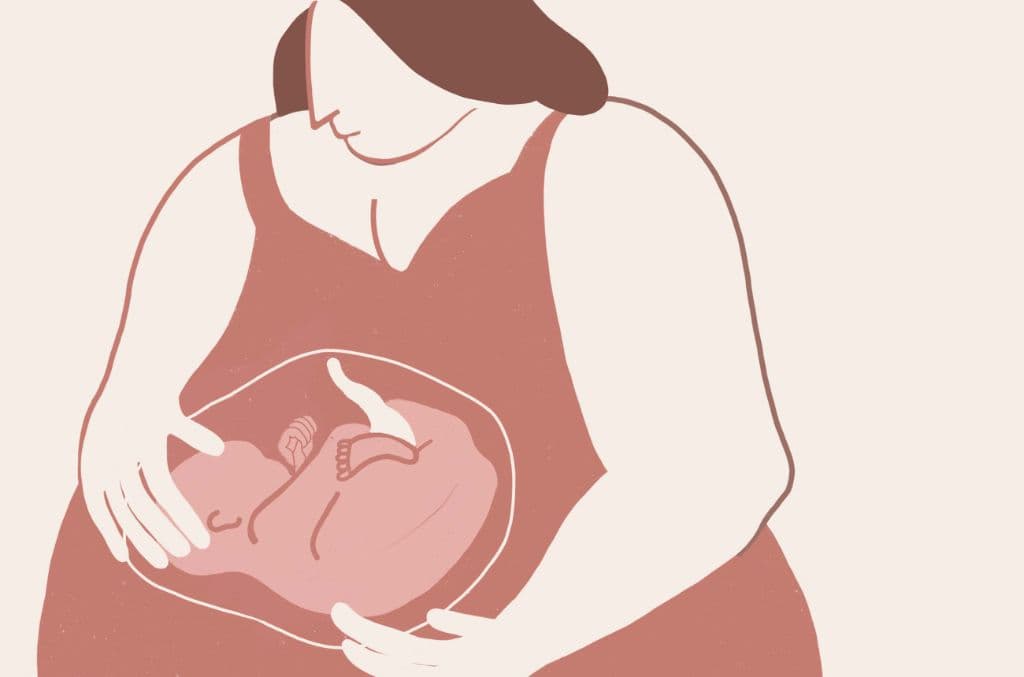Obesity poses a significant health problem for women during pregnancy. Obesity not only has direct implications on the health of the child but also affects the weight of the child in infancy and beyond. Obesity management during pregnancy requires a multi-disciplinary approach and will depend on the clinical circumstances, and comorbidities.
Paradoxically, despite extreme caloric intake, many obese women are lacking in vitamins vital to a healthy pregnancy. Maternal obesity poses a unique set of challenges that doctors must tackle to achieve the best outcome for mom and baby.
At the outset, we would like to clarify that no healthcare providers at Proactive wish to body shame or fat shame individuals with a certain body type. But, we intend to educate regarding following healthy lifestyle practices and raise awareness regarding the risks associated with an abnormal, unhealthy increase in body weight.
What is Obesity?
World Health Organisation (WHO) defines overweight and obesity as abnormal or excessive fat accumulation that presents a risk to one’s health. A person with a Body Mass Index (BMI) of 30 or more is generally considered obese. A person with a BMI equal to or over 25 is considered overweight.
Once considered a problem only in high-income countries, overweight and obesity are now on the rise in low and middle-income countries, particularly in urban settings. Overweight and Obesity are major risk factors for several chronic diseases, including diabetes, cardiovascular diseases, and cancer. For most adults, the BMI is a good way to get an idea of healthy weight ranges. The lowest risk is a BMI of 30–34.9. Medium risk is a BMI of 35.0–39.9. The highest risk is a BMI of 40 or greater.
Classification of weight by BMI (kg/m2)
- Underweight - Less than 18.5
- Normal - 18.5-24.9
- Overweight - 25-29.9
- Obese I - 30-34.9
- Obese II - 35–39.9
- Obese III - Greater than or equal to 40
While BMI is an accurate method of understanding body weight distribution, it is not the only means. Please understand when referring to obesity in pregnancy, we are talking about mothers who have an inactive lifestyle and unhealthy diet. If you are one of those few with a strong genetic component in your obesity or any other serious conditions, we advise you to seek help from a specialist/ team of specialists in due time.
What are the risks for mom?
A high BMI during pregnancy has been linked to an increased risk of various health problems for a baby including birth defects, impaired growth, childhood obesity.
What are the risks for a baby?
Obesity during pregnancy or excess gestational weight gain can lead to complications during pregnancy and (negative) birth outcomes and childhood obesity. Obesity and (high blood sugar) may also influence pubertal timing. Problems for your baby may include being born early (before 37 weeks), higher birth weight, more body fat at birth, stillbirth, birth defects like spina bifida, and increased risk of having a chronic condition such as heart disease or diabetes later in life. Sleep apnea is linked with Obesity. During Pregnancy, Sleep Apnea not only can cause fatigue but also increase the risk of high blood pressure, preeclampsia, eclampsia, and heart and lung disorders.
What can already overweight women do?
The main weight management strategies during pregnancy and the preconception period are dietary modification and exercise.
Be physically active: Staying physically active during pregnancy has significant benefits. It can lower your risk of pregnancy problems, such as gestational diabetes or high blood pressure, reduce the likelihood of common pregnancy complaints, aches, and pains, and improve your mood and reduce anxiety. Consult your gynecologist to choose from a wide range of physical activities such as walking, light jogging, yoga, and swimming. Any exercise started during pregnancy has to be gradual. Please be sure to check with your provider.
Stay away from harmful substances: Do not smoke. Smoking increases the risk of low birth weight and fetal death. If you smoke, talk with your physician about ways you can quit. Consuming alcohol is equally unsafe during pregnancy.
Consume a balanced diet: Pregnancy is not the time to start on a diet or crash diet. Our nutritional needs increase during pregnancy. Consult a dietitian to understand your dietary needs and follow a balanced diet plan rich in Folic acid. How much you weigh when you get pregnant will depend on your Body Mass Index (BMI) and how much you exercise. Women with BMI over 30 should aim for gaining under 10kgs of weight during a singleton pregnancy.
Folic acid supplementation: Women with BMI over 30 should be advised to start 5mg of folic acid daily at least a month before trying to get pregnant and during pregnancy. It reduces the risk of neural tube / spinal cord defects in your baby.
Work with your Physician: If you are looking to get pregnant and have a BMI over 30, try to reduce at least 10% of body weight before you get pregnant. Understand your risks and make informed decisions. Talk to your physician about your weight gain goals at the beginning and regularly throughout your pregnancy.
It’s important to remember that Obesity affects fertility. Obesity and Pregnancy can lead to Gestational Diabetes and larger birth weight for the baby. A healthy pregnancy is one where you have a healthy weight. If you’re trying to lose weight and also get pregnant, it’s advisable to weigh until your weight loss has plateaued. It will help the body support itself and the developing fetus.
As a new mother, stick to a healthy eating and exercise routine to reach a normal weight. We recommend breastfeeding in the first year of a baby’s life. Not only is breastfeeding the best way to feed your baby, but it also may help with postpartum weight loss.
Disclaimer: This article is for informational purposes only and is not a substitute for medical advice or treatment.
ProactiveForHer is a digital clinic for women, offering accessible, personalized, and confidential health-care solutions. We offer products and services for out-patient health concerns of Indian women, across their lifetime - from puberty to pregnancy to menopause. To know more on the sexual and reproductive health of women, visit https://www.proactiveforher.com/

